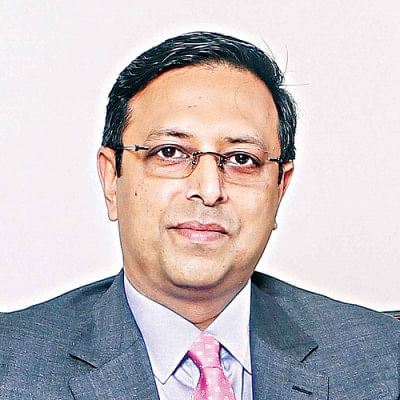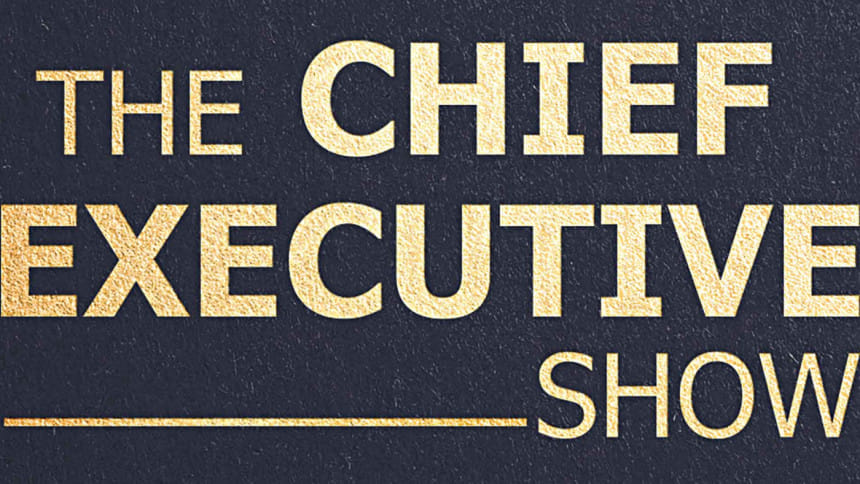Don’t walk away from problems -- be a force for good

The ship-breaking industry of Bangladesh employs around two lakh workers and meets about a quarter of demand for scrap metal in the steel industry that relies heavily on imports for raw materials.
Ship-breaking yards saw frequent hazards due to an unsafe working environment, and this led many banks to stop financing the industry decades ago as they did not want to be a part of a dangerous working condition.

But Standard Chartered Bangladesh decided to stay, for a good reason.
It made the clients understand the importance of putting in place a safe working environment and complying with regulations, as it would be good for the industry and also for the bank to keep supporting industries.
"It's very easy to walk away from problems. And if you walk away, things don't improve, and problems remain there," said Naser Ezaz Bijoy, chief executive officer of Standard Chartered Bangladesh.
"But in Bangladesh, the ship-breaking industry plays a vital role, and that's why we had thought of becoming a force for good rather than walking away."
"When we asked them to follow safety protocols, many refused. Those who stayed with us and complied with the regulations are more sophisticated now and leading the market."
There are now visible changes between the yards owned by the clients that complied with the regulations and those that did not, he said.
Naser said the culture of not walking away from problems shows goodwill, and he believes that it is essential for the CEO to walk the talk to drive the culture.
"If I say one thing and do the opposite, intelligent clients and colleagues will pick it up, and I will lose altogether," said Naser, who has been serving the bank for more than 28 years.
"Being upfront, even after making a mistake, is important."
Even though the bank has achieved massive success in the past 115 years of operating in Bangladesh, the top brass of the financial institution believes that the future is going to be different and one cannot rest on past laurels.
So, the bank has formed a group consisting of employees who are millennials, typically thought of as those born between 1984 and 1996.
Millennials account for 67 per cent of the 2,100-plus strong workforce of the bank in Bangladesh. The group has been formed to help them share ideas with the CEO.
The group is helping implement the locally-driven initiative that involves robotic process applications, machine learning and artificial intelligence.
The coronavirus pandemic accelerated the pace of change and to adopt with the new normal, a new project to digitalise all processes has been taken up at the bank.
Since the bank's foray in Bangladesh in 1905, it stands first for many new things like debit and credit cards, 24-hour customer care service and online banking.
But that's not the end. Recently, the bank has introduced blockchain for trading and remittance as the first bank in the country.
"To do new things, a partnership is vital. We never think that we can do everything independently," said Naser, who became the CEO in November 2017.
"Fintech is not our competitor. We need a partnership with fintech so that we can leverage each other's strength."
Moreover, to bring in new ideas, the CEO asked all management team members to come up with three new initiatives that will be first in the country.

In financial organisations, the number plays a vital role in terms of performance and newbies are most of the time are terrified of the numbers.
Naser, who started his career with the international bank as a graduate intern in 1992, said that only 50 per cent of an individual's performance relies on numbers while the rest are qualitative issues.
"To newbies, insights are important as these tell you about your future trends. Be a critical thinker, correlate thinking with the number and then start simulating to become prepared for the future."
According to the banker, success is something that makes someone feels good, while achievement is aligned with purpose.
"Organisations like StanChart always have performing people, but the way of achievement is more important and that left legacy behind," he said.
In that aspect, he prioritises the code of conduct.
"It's like a simple test. Whatever you're doing, if it is shown on the TV that your spouse and children get to watch, will you be proud?" he asked.
"You cannot train people about the code of conduct; it's a culture that you demonstrate in everyday practice."
He believes that mentoring plays a significant role, but there must be sponsorship as well.
"Combination of mentorship and sponsorship can correct the inequality in any organisation, especially in the perspective of gender," he said.
Only 13 per cent of employees in the banking sector are female, and the number is even lesser in the top. But Standard Chartered Bangladesh has taken corrective steps, said the CEO.
"I'm initiating a cross-industry mentorship. I think it would be great to make it institutional."
In early life, Naser never thought of becoming a corporate leader as he was more dedicated to sports during his youth.
After completing HSC from Notre Dame College in 1987, he admitted to Dhaka City College's commerce faculty.
"I was an average student. I was more passionate about sports than study," said Naser, who later got admission to the Institute of Business Administration under the University of Dhaka and obtained his MBA degree.
Even during his days at the country's top business school, he never thought of becoming a CEO someday. Rather, he aimed at completing the MBA and get a good job so that he can get married to her fiancée early.
He described his journey with the bank as a series of coincidence.
His father told him to pursue a career at an organisation that could give international exposer. For an internship, he was selected for Novartis, and one of his classmates was selected for StanChart.
"I had no significant plan, so when she asked me to exchange internship options, I said okay. After coming to StanChart, I fell in love with the organisation, and it's been 28 years."
Naser served the bank in Bangladesh, the United Arab Emirates, Mauritius and Vietnam.
"When you really like your organisation, it doesn't remain a job anymore," he said.
About becoming the CEO of the bank's country office, he said, "I think it's a huge privilege to become a CEO in my own country and that's a different type of happiness."

 For all latest news, follow The Daily Star's Google News channel.
For all latest news, follow The Daily Star's Google News channel. 



Comments